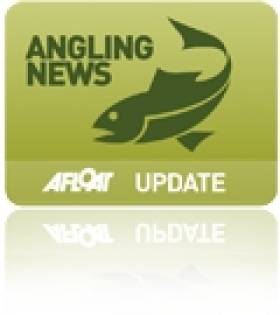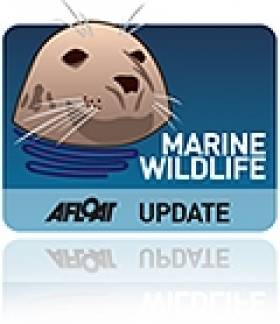Displaying items by tag: National Biodiversity Data Centre
Atlantic Salmon on 'Red List' of Endangered Species
Atlantic salmon have joined four other native fish on a 'red list' of endangered species compiled by the Ireland's fisheries and wildlife agencies.
As the Irish Independent reports, one third of the State's 15 native fish species are considered endangered or vulnerable.
One of the worst hit is the European eel, which was found to be critically endangered.
In a report published yesterday, a number of threats were highlighted such as water pollution, invasive species, overfishing, poor river management and climate change.
According to The Irish Times, the Red List was compiled by scientists from organisations across the island including Inland Fisheries Ireland, the National Parks and Wildlife Service, the Northern Ireland Environment Agency and the National Biodiversity Data Centre.
The news comes just a few days after Dublin celebrated the return of wild Atlantic salmon to the River Tolka after more than a century.
The Irish Times has more on the story HERE.
Ireland's First Biodiversity Audit Launched
Ireland's first ever biodiversity audit has revealed that our mountains, woodlands and waterways are home to more than 31,000 different species of plants and animals. For all the latest news on Irish marine animals click here.
Ireland's waters boast more than 560 different species of marine fish, most of which are perch-like or ray finned fish, while 29 different fish species inhabit Irish inland waterways.
The state of knowledge report also found that popular species of plants, birds or mammals make up just one in ten of all species in Ireland.
Dr Liam Lysaght of the National Biodiversity Data Centre told the Irish Independent that the report "will for the first time allow us to accurately describe Ireland's biological resources and identify the knowledge gaps that exist".
http://www.independent.ie/national-news/irelands-wildlife-audit-revealed-2591440.htmlScientists joined with State bodies, NGOs and third-level institutions last August to conduct the survey of Ireland's plantlife and wildlife.
Minister for Arts, Heritage and Gaeltacht Affairs Jimmy Deenihan said that the protection of Ireland's biodiversity "is not a luxury".
The report is available online at biodiversity.biodiversityireland.ie
Ireland's first ever biodiversity audit has revealed that the country's mountains, woodlands and waterways are home to more than 31,000 different species of plants and animals.
The survey reveals that Ireland's waters boast more than 560 different species of marine fish, most of which are perch-like or ray finned fish, while 29 different fish species inhabit Irish inland waterways.
The state of knowledge report also found that popular species of plants, birds or mammals make up just one in ten of all species in Ireland.
Dr Liam Lysaght of the National Biodiversity Data Centre told the Irish Independent that the report "will for the first time allow us to accurately describe Ireland's biological resources and identify the knowledge gaps that exist".
Scientists joined with State bodies, NGOs and third-level institutions last August to conduct the survey of Ireland's plantlife and wildlife.
Minister for Arts, Heritage and Gaeltacht Affairs Jimmy Deenihan said that the protection of Ireland's biodiversity "is not a luxury".
The report is available online at biodiversity.biodiversityireland.ie
New Online Atlas of Irish Freshwater Fish
The National Biodiversity Data Centre has launched a new online atlas of freshwater fish in Irish lakes.
Produced in collaboration with Inland waterways Fisheries Ireland, the website features has a species search tool that gives access to detailed data and images for 23 freshwater fish species found in Irish lakes.
The lake browser tool also allows users to see what species were recorded where in 956 lakes across the country.
Not only a useful educational tool, the site could prove particularly useful for anglers looking for the perfect catch.






























































